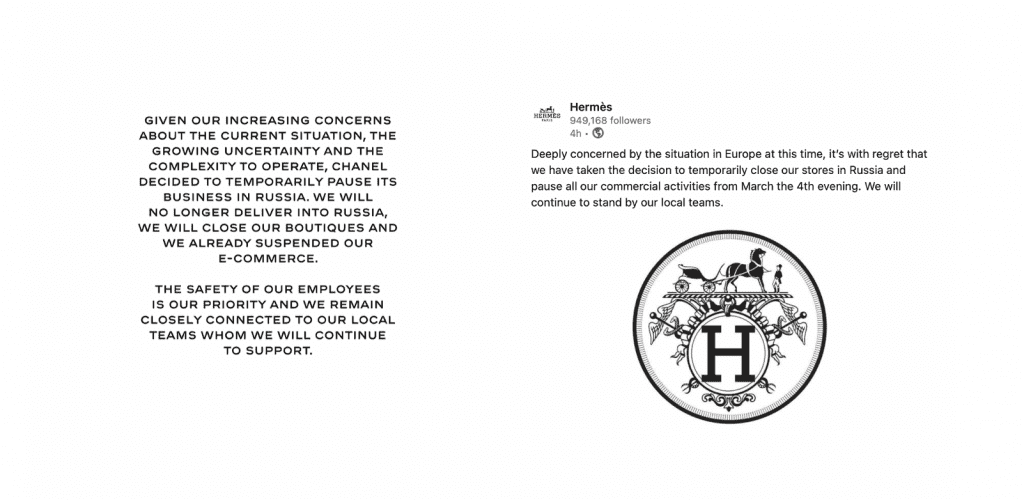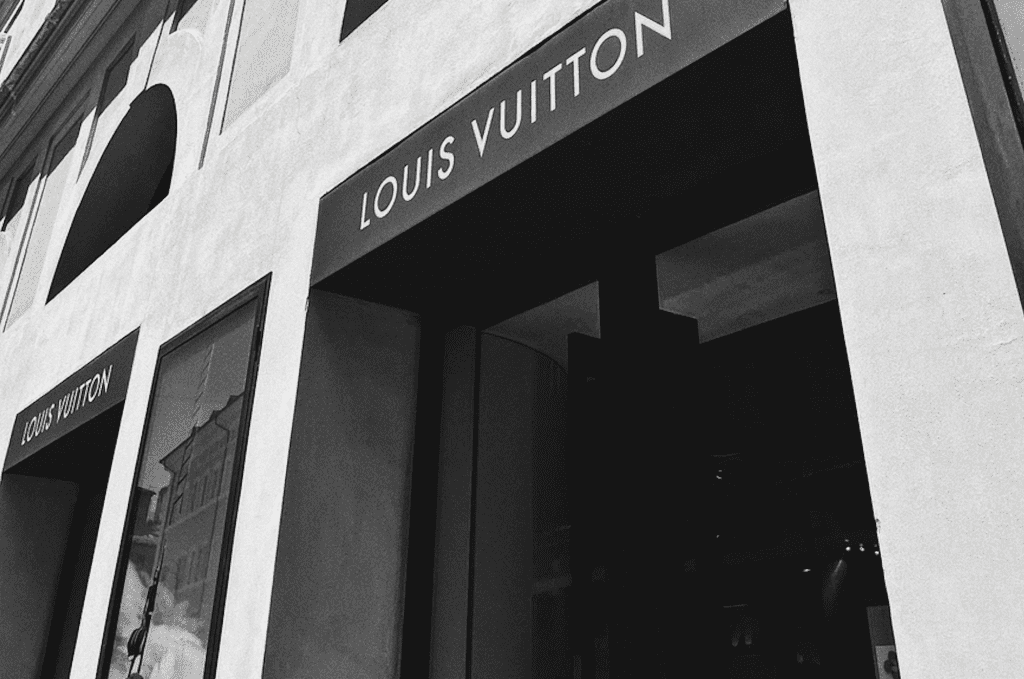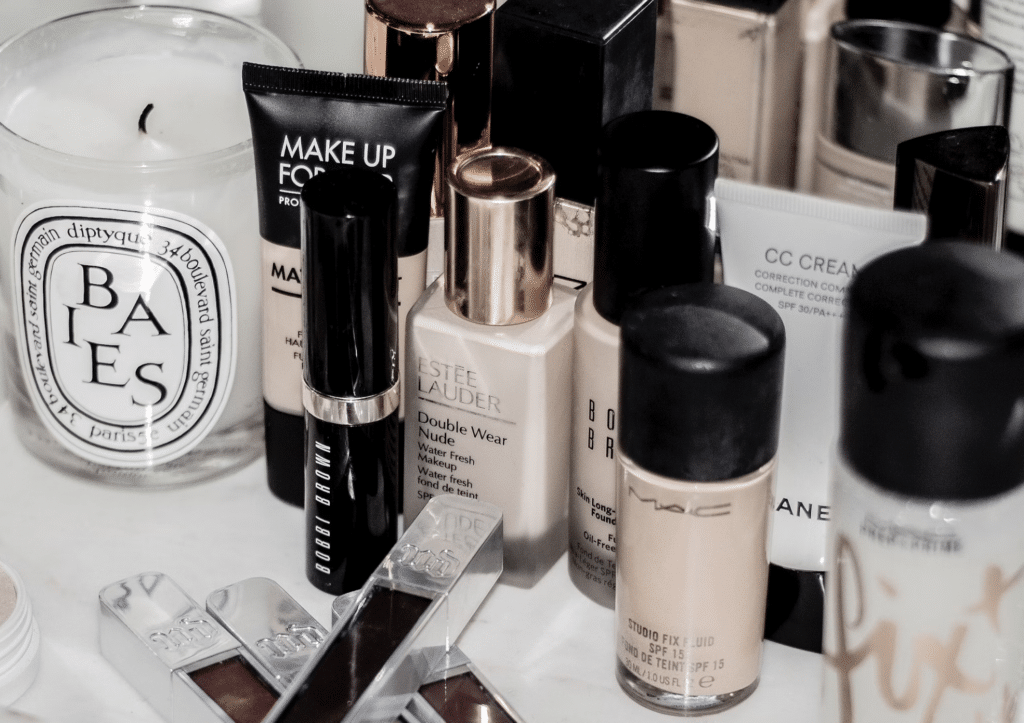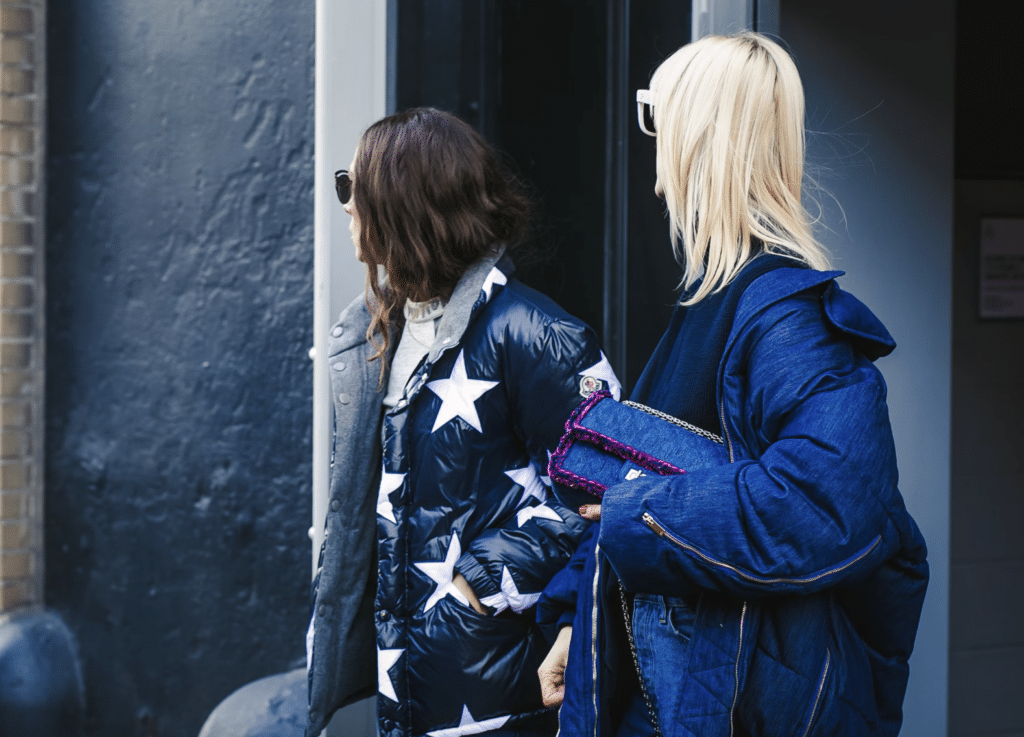A swiftly growing list of luxury brands are putting a stop to sales in Russia. On Wednesday, Bulgari CEO Jean-Christophe Babin said it was unclear how long a spike in luxury goods spending in Russia would last, as consumers sought to exchange their rubles for luxury goods in order to amass some value from the falling Russian currency. But it appears that as of Friday, the end was in sight, as in the wake of an array of companies – ranging from the likes of Nike and adidas to BP and Shell – announcing plans to temporarily shutter their operations in Russia on the heels of the Vladimir Putin-led invasion of Ukraine, luxury goods giants are starting to make similar moves.
A number of entities atop the luxury totem pole joined a growing list late this week, with Burberry, Hermès, Chanel, Cartier owner Richemont, LVMH Moët Hennessy Louis Vuitton, and Kering revealing that they are temporarily closing up shops and halting e-commerce sales, with many making nearly identical – and thoroughly diplomatic – statements about “the current situation” and vowing to support their local teams, without going into much detail potentially in order to avoid burning bridges with Russian spenders.
Among the most notable and most recent additions to the list of luxury goods group distancing themselves from Russia, a spokesman for LVMH said on Friday afternoon that “given the current circumstances in the region,” it would “temporarily” cease operations in the stores of its stable of luxury goods brands in Russia, noting that it “stands alongside its 3,500 employees in Russia, and their families,” and confirming that it will continue to compensate employees with their “salary and benefits during this period.” Fellow French conglomerate Kering, which owns Gucci, Balenciaga, Saint Laurent, and Bottega Veneta, among other luxury brands, similarly asserted in a statement on Friday that “due to growing concerns regarding the current situation in Europe,” it is “temporarily closing its stores in Russia for its Houses that the Group operates directly in the country.”

The current closures come in the midst of the significant logistics/supply disruptions, and other effects of Russian sanctions, which do not directly block the import of luxury goods but that, nonetheless, make it difficult for brands to operate. Shipping giants, such as UPS and FedEx, announced that they would stop their services both to and from Russia and Ukraine, while DHL revealed that its “inbound services to Russia and Belarus have been suspended, which is why [it is] also not accepting shipments to those countries until further notice.”
At the same time, the plummeting value of the ruble, which fell about 30 percent against the dollar early this week, making it worth less than 1 U.S. cent, hardly puts an onus on brands to keep their doors open, particularly as consumers were “panic buying luxury goods that may have high resale value” in anticipation of the inevitable plummet of the Russian currency. Sources tell TFL that certain luxury brands have been particularly eager to close their doors to avoid selling off their stock en masse in exchange for the swiftly-falling ruble.
In a nod to looming supply issues, Babin stated this week that the implementation of SWIFT measures “might make it difficult, if not impossible, [for brands] to export to Russia.” The U.S. and the European Union, along with several allies, confirmed that they would block certain Russian institutions’ access to the Society for Worldwide Interbank Financial Telecommunication (“SWIFT”) international payments system. On Wednesday, representatives for the European Union revealed that the 27-member bloc will exclude seven Russian banks from the SWIFT messaging system, a move that is expected to have an effect on Western companies and banks in addition to proving capable of isolating Russia when it comes to international trade.
The messaging coming from the luxury segment is notably – although, potentially not surprisingly – different from the sentiments that have been pushed out from the likes of Apple, for instance, which pointed to its “deep concern about the Russian invasion of Ukraine” in connection with its move to halt sales. A spokesman for the tech titan stated this week that in addition to pausing sales and stopping exports, Apple is “supporting humanitarian efforts, providing aid for the unfolding refugee crisis, and doing all we can to support our teams in the region.”
The responses to luxury brands’ announcements have been mixed thus far. While some have celebrated the moves to shutter shops, including by commending the luxury titans for taking “commercial” action, much of the sentiment has come in the form of pushback in connection with what consumers view as largely vague statements from brands.
“Luxury brands should be much clearer in their statements: it is a war, an invasion, an aggression,” one individual wrote in response to Kering’s statement on LinkedIn. “With independent media being banned from Russia it is even more important to state this loud and clear,” the individual continued. Hermès is seeing similar skepticism on LinkedIn, as users have voiced their disapproval of the language in its statement, with one asserting, “It is not a ‘situation.’ It is a war. You don’t even mention Ukraine in your post.”
And still yet, others have questioned the motives behind such moves, with one individual, for instance, stating that it is “nice to see [such statements] but let’s not pretend that companies deserve goodwill credits here. A good majority is doing it because [the] credit card and financial systems are shut down, and [the brands] cannot get paid. At same time, the Ruble volatility makes it impossible to accept cash and manage FX. So, it is not like they have a lot of choice but to ‘pause.'”













